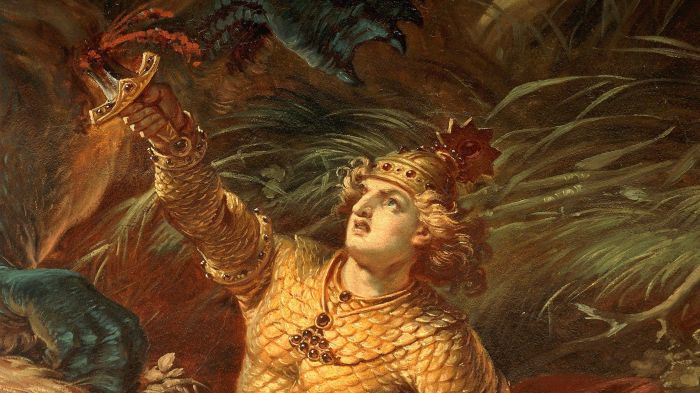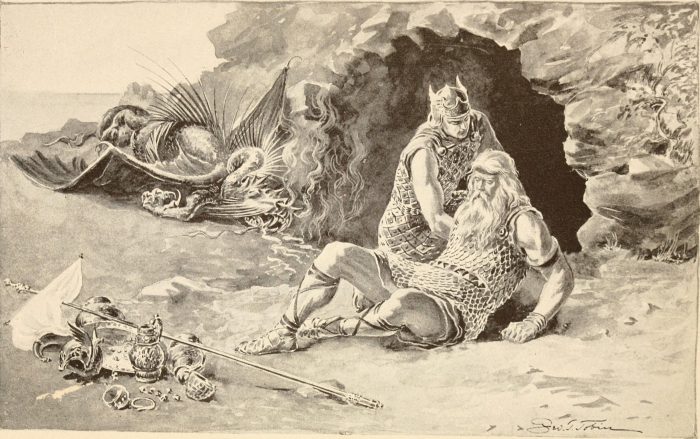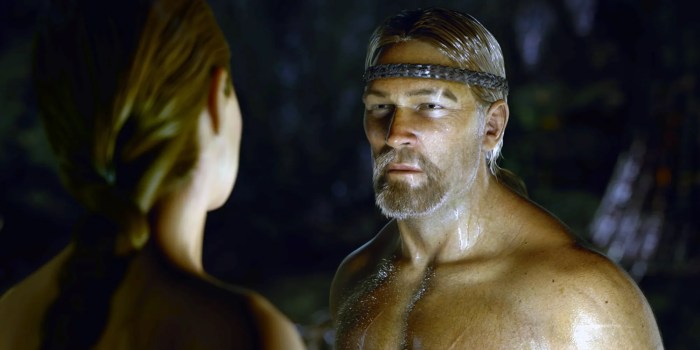Old english epic hero crossword clue – The enigmatic crossword clue “Old English epic hero” beckons us to unravel the tapestry of these legendary figures. In this discourse, we delve into the defining characteristics, heroic code, and supernatural influences that shape the journeys of these epic warriors, providing a comprehensive analysis of their significance in Old English literature.
Old English Epic Hero: Old English Epic Hero Crossword Clue

Old English epic heroes embody a unique set of characteristics and traits that define their legendary status. These heroes adhere to a strict heroic code that guides their actions, emphasizing loyalty, courage, strength, and honor. Their journeys are often shaped by fate and destiny, which play a pivotal role in determining their ultimate outcomes.
Epic Battles and Feats
Old English epics depict grand-scale battles with immense intensity and vivid detail. These battles showcase the heroes’ extraordinary abilities and unwavering determination. Notable battles include the Battle of Maldon, where the Anglo-Saxon warriors faced off against Viking invaders, and the Battle of Brunanburh, a decisive victory against a coalition of enemies.
The heroes’ feats of strength and courage are amplified through the use of hyperbole and exaggeration, adding to the epic grandeur of these narratives.
Supernatural Elements and Symbolism
Supernatural beings, such as gods, monsters, and mythical creatures, play a significant role in Old English epics. These elements add an otherworldly dimension to the stories, influencing the heroes’ journeys and providing insight into the beliefs and values of the time.
Objects, places, and events often carry symbolic meanings, contributing to the epics’ themes and overall impact. For example, the sword Hrunting in “Beowulf” symbolizes both the hero’s strength and his vulnerability.
Language and Poetic Devices, Old english epic hero crossword clue
Old English epic poetry employs a unique language and poetic style. Alliteration, kennings, and other stylistic elements enhance the rhythm, flow, and memorability of these epics. Alliteration, the repetition of consonant sounds at the beginning of words, creates a sense of rhythm and emphasis.
Kennings, metaphorical compounds, provide vivid and imaginative descriptions, enriching the narrative with cultural and historical references.
Historical and Cultural Context
Old English epics emerged during the Anglo-Saxon period, influenced by the values, beliefs, and traditions of the time. These narratives reflect the social hierarchy, the importance of loyalty and kinship, and the role of religion in Anglo-Saxon society. The transition from oral tradition to written form allowed these epics to be preserved and passed down through generations, shaping the cultural identity of the English people.
Questions and Answers
Who are some notable Old English epic heroes?
Beowulf, Grendel, Hrothgar, and Finn are prominent examples.
What is the significance of fate and destiny in Old English epics?
Fate plays a crucial role, shaping the hero’s journey and ultimately determining their destiny.
How do supernatural elements contribute to the epic grandeur of Old English literature?
Supernatural beings, monsters, and mythical creatures add depth and symbolism, enhancing the epic’s scale and impact.

